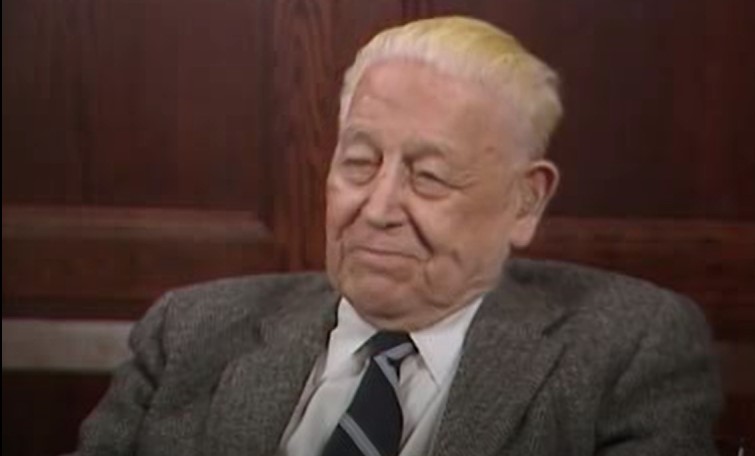When Seattle attorney and scholar Alfred J. Schweppe, age 93, died in April of 1988, his name was high in the legal firmament, and beyond. He had seemingly touched the lives of most Washington state residents.

Born on a Minnesota farm, young Alfred came to the Pacific Northwest to find relief from an acute case of hay fever. Ten years after being admitted to the State Bar on June 30, 1922, he was presented card Number One of the Washington State Bar Association. That signal honor was given because Schweppe had been active in forming the local bar association and had served as its president.
Law School Dean John T. Condon of the University of Washington died suddenly in 1926. Young Al Schweppe, who had been lecturing at the law school, was named Dean, the youngest Dean of a major law school in the nation.
After returning to private practice, he participated in several issues that would affect every state resident: the first was his writing of the 40-mill-limit amendment to the state constitution, which includes the famous 60 percent voter clause on special levies.
In 1948, Schweppe wrote the initiative that brought liquor-by-the-drink to Washington state hotels and restaurants. In 1966 he campaigned to repeal the 1909 so-called Blue Laws, which had required Sunday closure of bars. Later, in 1972, he co-sponsored an amendment to the state constitution that allowed certain forms of lotteries, especially bingo.
Before one assumes that Al Schweppe was a “liberal” in his political and social persuasions, it’s worth noting that he was a rock-hard Republican, a life member of Seattle’s establishment Rainier Club, and was cautious and correct in habit and dress. His legal positions, however, were aligned to constitutional issues. He saw the law as the backbone of a free society.
Occasionally his strict-construction posture brought him in direct conflict with popular issues. For example, he opposed the R.H. Thompson Expressway through the University of Washington Arboretum; he opposed fluoridation of public water systems; he fought the establishment of the Seattle World’s Fair.
On the personal side, Al Schweppe lived comfortably in Seattle’s tree-lined Washington Park, raised a son and a daughter, and saw his six grandchildren attain maturity and success. He played tennis, was an avid reader and a top-notch bridge player. An opera buff, he helped organize the local Seattle Opera Guild. He wrote frequent, vivid, and reasoned letters to the editor.
To me, he represented a rare mix of education, civility, courtly manners, and personal warmth. Though I was 50 years his junior, held different political views, and was not trained in the law, Schweppe welcomed our lunches and conversations. He also served as chair of Seattle Mayor Wes Uhlman’s Crime Prevention Commission, where I was a member, honored to be in the Schweppe orbit.
Once I warned him that a particular view of his would be opposed by powerful interests. He smiled and said, “Junius, all my life I’ve been opposed by experts.”
Discover more from Post Alley
Subscribe to get the latest posts sent to your email.

A beautiful and fascinating tribute to the man. Thank you.